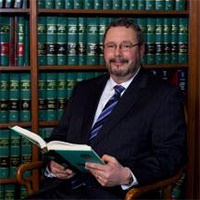Lakeville Criminal Lawyer, Connecticut
Sponsored Law Firm
-
 x
x

Click For More Info:
-
Attorney John F. O'Brien
411 Center Street Manchester, CT 06040» view mapCriminal Defense Law Affordable Criminal Defense
Attorney John F. O'Brien is an experienced criminal defense lawyer and trial lawyer. You don’t have to go through this alone, we are here to protect you and your rights!
60-290-9090
Steven Howard Levy
✓ VERIFIEDDivorce & Family Law, Criminal, Personal Injury, Wills & Probate, Real Estate
Attorney Levy earned his B.A. from the State University of New York at Buffalo, and his J.D. from Antioch School of Law. He was admitted to the Connec... (more)
Robert A Salerno
✓ VERIFIEDCriminal, Workers' Compensation, Personal Injury, Divorce & Family Law, Wills & Probate
Robert A. Salerno attended Law School and received a B.S. from High Point University in 2005 and his Juris Doctor in 2009 from Touro Law Center. He wa... (more)
Robert A D Andrea
Real Estate, International, Criminal, Accident & Injury
Status: In Good Standing Licensed: 44 Years
Maureen Elizabeth Donahue
Estate, Divorce & Family Law, Criminal, Personal Injury, Child Custody
Status: In Good Standing
William A. Conti
Accident & Injury, Criminal, DUI-DWI, Divorce & Family Law
Status: In Good Standing Licensed: 51 Years
William Achille Conti
Federal Appellate Practice, Workers' Compensation, Divorce & Family Law, Criminal, Divorce
Status: In Good Standing
Noah Jon Kores
Workers' Compensation, Criminal, Trade Associations, Personal Injury
Status: In Good Standing Licensed: 14 Years
 John F. O'Brien Manchester, CT
John F. O'Brien Manchester, CT Practice AreasExpertise
Practice AreasExpertise


